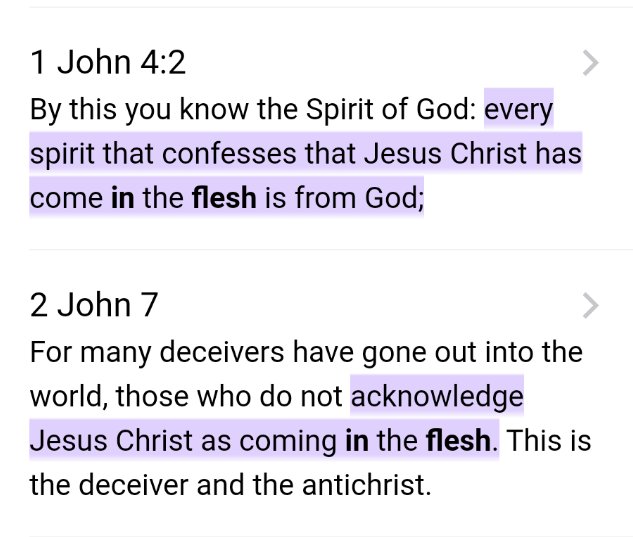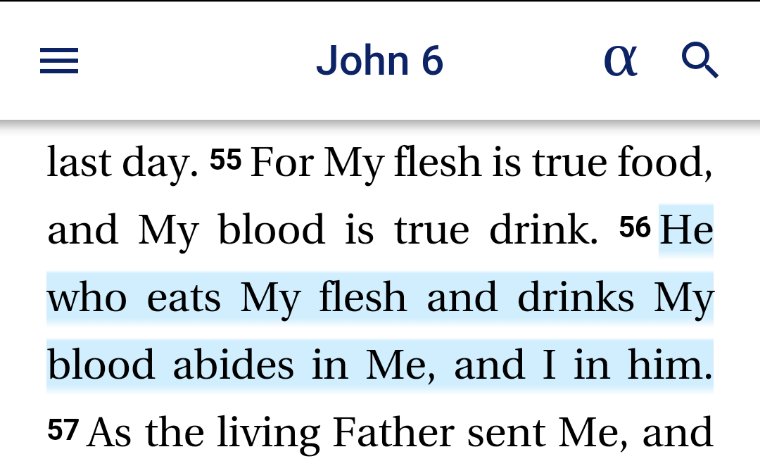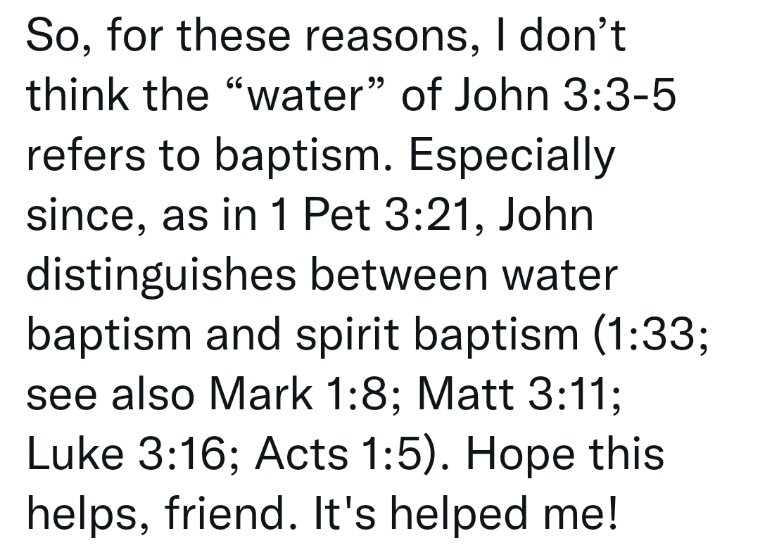
Sidebar: JAT Robinson doesn't mention which Latin Fathers, so I think I'll peruse the Ante-Obscene, Obscene, & Post-Obscene Fathers.
https://twitter.com/NicolasGold1/status/1454935802325217280
Origen (Against Celsus, LXIV), "when he had 'put off the governments and powers," ... Hippolytus (The Refutation of All Heresies, VIII, iii), "might strip off that body," ...
Novation (Treatise Concerning the Trinity, XXI), "'having put off the flesh, he spoiled powers, they being openly triumphed over in himself,' he certainly did not without a meaning propound that the flesh was put off, unless because he wished it to be understood that it was ..."
"... put on also at the resurrection." Odd that he says both "put off the flesh" & "spoiled." However, it's clear from the rest of the chapter that "putting off flesh" is meant as that is his focus in this chapter.
But Novation is still thinking dichotomously like a Greek w/ the "flesh" being something the "spirit" puts on. Nevertheless, five volumes in and everyone reads "put off the flesh."
Origen (Commentary bon John, 18 & 37) & Commentary on Matthew, 26-40) all say "put off from himself the principalities and powers."
Augustine (Reply to Faustus the Manichean, XVI.29; On the Trinity, IV.18): "putting off the flesh."
Chrysostom (Homilies on First Corinthians, XXIV.7; XXXVIII.3): "putting of the principalities and powers."
Aside: What was John the Elder's central concern here? I don't think he'd care one iota about homoousios vs. homoiousios nature matters. 





Aside: John mentions "flesh" 12x in his Gospel; more than M,M, & L put together. Half of those incidences appear in chp 6 - in a participatory context. The subject is obviously important to him, even appearing near beginning of the book. 





John portrays the corporate Jesus as a/the "temple." "My Father's House" (chp 2) refers to Jesus' body. Thus, the term in chp 14 refers to his body NOT "heaven." The "dwelling place" (mone) is connected to "abiding" (meno) in Christ. Thus, "eating flesh" (chp 6) is participatory. 







That corporate/participatory nature conforms w/ Paul's depiction of Jesus as cornerstone in who a temple (the Church) is built (Eph 2; 1 Cor 3 & 6) & as head that cleanses & sanctifies the body (the Church) w/ a washing w/ the word - a physiological analogy (Eph 5). 



In John & Revelation, the Elder portrays Jesus not just as a temple but a temple from which the Spirit (living water) flows: both water and Word/logos(?). So Paul & John (& Peter) are working w/ similar to same metaphors to express similar to same ideas. 







You'll notice that the use of the "head" metaphor here is not employed to describe leadership or authority but rather source of sanctification (see 1 Cor 7:14).
Athanasius (Incarnation of the Word, 45.5): "having put off from himself the principalities and the powers." (Life of Antony, 35): "stripped them" [demons].
F.F. Bruce (TNTC Romans), on Rom 8:3, quoting (O. Michel) “'The power of sin is a cosmic unity, but it is broken into at one absolutely specific point.’ For those united in Christ, the power of sin has been broken."
On 1 John 4:2 (also 2 John 7) …
(The great) Marianne Meye Thompson (IVPNTCS): “What is at stake is a source of debate.”
Maybe a debate b/c of misunderstanding the context?
Also, who are the “false teachers” - Gnostics, Docetics … general Platonists?
(The great) Marianne Meye Thompson (IVPNTCS): “What is at stake is a source of debate.”
Maybe a debate b/c of misunderstanding the context?
Also, who are the “false teachers” - Gnostics, Docetics … general Platonists?
Cyril of Jerusalem (Catechetical Lectures, XX.1-3 "On Baptism"): Lecture to newly baptized (obviously not infants). "I shall necessarily lay before the sequel of yesterday's Lecture, that ye may learn of what things, which were done by you in the inner chamber, were SYMBOLIC." 😂
The convert taking off the tunic was "the image of putting off old man," "having stripped naked; in this imitating Christ, who was stripped naked on the cross, and by his nakedness put off from himself the principalities and powers."
There's more on taking off garment, as "old man," nakedness, no shame, etc. E. Gifford in a fn: "This passage agrees best with the interpretation that Christ, having been closed with likeness of sinful flesh during his life on earth ..."
"... submitted therein to the assaults of the powers of evil, but on the cross threw off from himself both it and them." Very interesting.
Jerome (Letters, XXII.38): "principalities and powers." Ambrose (Concerning Repentance, II.9-10): "principalities and powers."
John Cassian (Institutes, Book III. Chap. 3): "despoiling principalities and powers").
Per Peter Gorday (Ancient Christian Commentary on Scripture, New Testament, IX):
Theodore of Mopsuestia (TEM 1:291): "putting off of mortality that the demonic powers are overcome."
Severian of Gabala (NTA 15:324): "putting off of the flesh Christ subdued the opposing powers."
Theodore of Mopsuestia (TEM 1:291): "putting off of mortality that the demonic powers are overcome."
Severian of Gabala (NTA 15:324): "putting off of the flesh Christ subdued the opposing powers."
Having perused the various writings on Col 2:15, I conclude that the early Church commentators interpreted the verses as referring to Jesus “putting of the flesh.” Only later does the idea shift to “putting off the Powers,” though sometimes the two interpretations are combined.
M. Barth & H. Blanke (ABC Colossians) examine the verse thoroughly:
If the middle voice is to be understood in its classic function, in other words if it makes a statement concerning the effective active subject, and we have two possibilities for interpretation in this verse:
If the middle voice is to be understood in its classic function, in other words if it makes a statement concerning the effective active subject, and we have two possibilities for interpretation in this verse:
1a) “in having ‘unclothed’ himself” (see 2:11) Christ is now the subject, but without being named.
“in him” reflexively at the end of the verse (see 1:19) but if Christ is the subject these words are superfluous.
“in him” can hardly be a referent to the “cross” (2:14)
...
“in him” reflexively at the end of the verse (see 1:19) but if Christ is the subject these words are superfluous.
“in him” can hardly be a referent to the “cross” (2:14)
...
Peter O’Brian (WBC, 44) argues convincingly that ἐν αὐτῷ should be translated as "in him," as the idea "runs like a silver thread" through the passage: vv. 5, 6, 7, 9, 10, & 11, forming an inclusio.
1b) (continuing w/ Barth and Blanke)
Christ having "unclothed himself." This would fit well within the context.
But why does Paul not speak expressly here about “the clothing of the body”?
...
Christ having "unclothed himself." This would fit well within the context.
But why does Paul not speak expressly here about “the clothing of the body”?
...
2) “he has stripped himself of rulers and powers”
“The image of a garment consisting of evil powers is without parallel in the OT and NT.”
...
“The image of a garment consisting of evil powers is without parallel in the OT and NT.”
...
3a) Barth & Blanke prefer a third of option (as does O'Brian).
Middle voice is used in active sense since a change in subject between vv 11-14 in v 15 does not explicitly occur we should take it for granted that the middle voice is to be understood in its classic sense.”
Middle voice is used in active sense since a change in subject between vv 11-14 in v 15 does not explicitly occur we should take it for granted that the middle voice is to be understood in its classic sense.”
3b) They note that it should read “unclothed the rulers and powers," rather than “disarm” or “plunder."
Thus, their translation of Col 2:15 reads,
"When he [God] had unclothed the rulers and powers, he made a public display of them, having triumphed over them in him [Christ]."
Thus, their translation of Col 2:15 reads,
"When he [God] had unclothed the rulers and powers, he made a public display of them, having triumphed over them in him [Christ]."
3c) In this, the "unclothing" of the Powers by God would be a semi-ironic victory: the Christians have the old "self/flesh/human" taken off (2:11; 3:9) in Christ, but God has stripped the Powers, making a public display of them, in Christ.
That reading is good and possible. The irony make sense. Wright (TNTC), who agrees with this interpretation (also seeing parallels in 1 Cor 1:18-2:16) notes Caird who suggests that what God does to the Powers in Col 2:15 is what the Powers did to Christ on the cross.
I think this favored interpretation is strongest in that it does not require the supposed abrupt change of subject, that of God to Christ.
However, I'm not convinced of this alternate interpretation. I still very much believe that J.A.T. Robinson's interpretation is far superior: Christ "having put off from himself the flesh." Reasons:
1) Even commentators who reject the interpretation that Christ is the subject of the verse who strips off the flesh, admit that the such an interpretation is possible, more naturally fits the middle voice, and conforms to the context of the passage.
2) Even more than simple context, the removal of the flesh is the stated idea in both 2:11 (apekdusei) and 3:09 (apekdusamenoi), the latter which uses the same word as 2:15. In these two other places the removal is what has occurred to those "in Christ."
3a) I think O'Brien is correct over Robinson in reading ἐν αὐτῷ as "in him." But, I think this strengthens Robinson's overall view. O'Brien's "silver thread" makes use of "in him" referring to Christ less superfluous than it would otherwise - particularly if it's an inclusio.
3b) Also, the repeated use of "in him" points to the corporate solidarity which necessarily "flesh" theme, which leads to the next point ...
4) It is the participation in Christ’s death-resurrection that enables the Christian’s putting off of “flesh” (2:11; 3:09) b/c, as the corporate kingship works, what happens to Christ can be said to happen to his people – those “in him.” Few commentators note that here.
5a) Few note the themes of participation death-resurrection (Gal2:27; Col2:12; 1Cor12:13; Rom6:3ff; 2Cor5:14f), taking off self (Col2:11; 3:9; Eph4:22; 1Cor15:53f; 2Cor5:1-4, 17), putting on Christ (Gal3:27; Col3:10; Eph2:15; 4:24; Rom6:6; 13:14; 1Cor15:53f; 2Cor5:1-4, 17) ...
5b) ... which conform to the idea of removing the flesh. Again, this only makes sense for the believer if it happened to Christ, which the original audience would have known ...
6) ... particularly given the references in Col 2:11. Jesus’ death can be called his “circumcision” b/c the crucifixion was the real & complete laying aside of the flesh which circumcision was a partial symbol. See also Philippians 3:3 in this regard.
7a) Furthermore, it was the Son who was sent in the likeness of sinful flesh, in whom God condemned sin in the flesh (Rom 8:3), which aligns w/ the idea of victory over the Powers.
7b) Also, in Eph 2:15, Christ abolished in his flesh the enmity, which is the Law of commandments contained in ordinances (dogma) - the Law which Paul refers to in Gal 4:3 & Col 2:8 as a stoicheion, considered one of the Powers.
7c) These hostile ordinances or decrees (dogma) of the Law are what was taken out of the way, having been nailed to the cross (Col 2:14).
8) One can also add Eph 4:20-24 in which “putting aside the old self" (another way Paul speaks of putting off flesh) is the way of Christ.
8) One can also add Eph 4:20-24 in which “putting aside the old self" (another way Paul speaks of putting off flesh) is the way of Christ.
9) Enduesthai (except where it relates to armor: 1 Thes 5:8; Eph 6:11, 14) & apekduesthai always in Paul takes their object the body or its equivalent. In 2 Cor 5:3f, endusamenoi & ekdusasthai are used in a similar intransitive way.
10) Finally, as noted far far above, this reading of Christ defeating the Powers in putting of his "flesh" was the predominant understanding of the early Church.
I think this interpretation is accurate. So, now, how did Christ casting off the "flesh" triumph over the Powers?
Aside: John the Elder notes that Jesus came in the flesh 3x (John 1:14; 1 John 4:2; 2 John 7). contrasted w/ spirit (John 3:6; 6:63), frailty (John 1:13), lust of flesh (1 John 2:16), participatory (John 6:51-56), "all flesh" (John 17:2), food for animals (Rev 17:16; 19:18, 21).
John 17:2 - pases sarkos ("all flesh") (1 Cor 15:39), used in LXX Jer 32:27; 45:4; Isa 40:5-6; Pss 136:25; 145:21; Num 18:15; Lev 17:14; Gen 6:17, 19; 7:15-16; 8:17; 9:11, 15-17).
I question whether John's assertions about "Jesus coming in the flesh" are principally motivated by a desire to refute (proto-)Docetism. Do any of his other mentions of "flesh" give us any insight into his concern?
Also Joel 2:28. I'm not sure why I didn't note that.
https://twitter.com/NicolasGold1/status/1461200607755255813?t=zKiE2IjyOi2J7VZ_JyyY_A&s=19
John definitely has corporate solidarity concepts in his thinking. His use of "flesh" in John 6 is participatory, corporate communion in similar ways Paul speaks of communion.
Remember: Hebrew had no word for body; basar ("flesh") did the work of both the Greek sarx ("flesh") & soma ("body"). For John the Elder, saying "this is my flesh" would be the same as "this is my body."
I'm reading Ellis' The Word of St. John (1965) & wondering again why the Elder's so insistent that Christ came in the flesh (1 John 4:2; 2 John 7). Ellis thinks it's due to Gnosticism - again, 1965.
At best, John would be refuting a proto-Gnosticism, which would be practically indistinguishable from general Platonism. The same would be true w/ Docetism (see above).
I seriously doubt John is thinking in Nicene terms. So far, I've seen no evidence that the Church Fathers understood corporate solidarity. They tend to find the basic "one flesh" idea mysterious (sacramentum) & go no further.
If John thought corporately in terms of "flesh," I've yet to see evidence that the Church Fathers would have recognized it. I'd prefer to find evidence!
Of course, John 1:14 has both sarx and skēnoō with the latter's tabernacle/temple corporate language (see Rev). Aside: And there is monogenes ... meaning "unique." 



Marianne Meye Thompson (1-3 John [IVP]), notes John 6:33, 51. Yes, sarx is mentioned 25 times in the Gospels-Acts. About half are in John and over half of those are in chp. 6. If you were looking for the Elder's most sustained treatment of the subject, John 6 would be it.
Aside: There are many layers in John's Gospel. One is that of a trial w/ witnesses (see marturia & martureō) that begins, not in chp. 18, but in ch. 1. And while it looks like Jesus is the one in trial, by the end it's EVERYONE ELSE who's been on trial. 1/2
Under the trial analogy, The Satan's primary purpose in the Bible is to accuse (Job 1-2; Zech 3; Rev 12:10). I thought along these lines when Ellis notes, "In heaven Satan, the accuser of men, is himself judged by the witness of the ascended Man" (John 16:11). 2/2
While noting the preponderance of evidence suggests a communion interpretation in John 6, L. Morris (NICONT) sees the use of sarx instead of soma indicating a non-communion interpretation, specifically Jesus' propitiatory sacrifice.
F.F. Bruce points out v.40 says those who see & believe have life in the age to come & in v.54 it is eats & drinks Christ has that life. 



Sarx in v.56 is linked w/ "abiding" used in John w/ a corporate sense (see below). "Father's House" in 14:2 refers to Jesus' body as Temple (see 2:16-21) w/ many "abodes" for believers" to "abide." This flesh-corporate-temple connection is supported by 1:14 w/ flesh & tabernacle 







See here on abiding:
https://twitter.com/NicolasGold1/status/1362411926391783429?t=_3AJGpU4GZTNhFnP2CxcLA&s=19
Also here:
https://twitter.com/NicolasGold1/status/1339659197282213888?t=_3AJGpU4GZTNhFnP2CxcLA&s=19
Carson notes the same sarx-soma issue as Morris but is more cautious.
Some of these scholars are determined to find PSA in this chapter.
"The primary symbolic reference of 'blood' in the Bible is not to life but to violent death." Lord, give me strength! 

In Hebrew atonement sacrifices, the blood "symbolizing" life was used on "mercy seat" of the ark of the covenant (Yahweh's throne) to purify the pollution of sin (which stunk of death) so that Yahweh could be present w/ his people. The point of the sacrifice was life, not death.
But the scholar's error has led me to a thought (this happens to me much w/ this great gentleman). 6:26-65 ... "blood" 4x, "life" 10x, "live" 7x, "death" Ox, "die" 3x, and the three references to "die" are about having life instead. The blood in this chapter is about life.
In 1 Cor 10, Paul uses the example of Israel in the wilderness (strikingly similar to Jesus' in the wilderness) as example of unity & participation (same food, same drink), which he contrasts w/ Christian unity & participation in the bread/body & drink/blood of communion.
• • •
Missing some Tweet in this thread? You can try to
force a refresh






